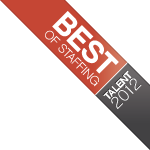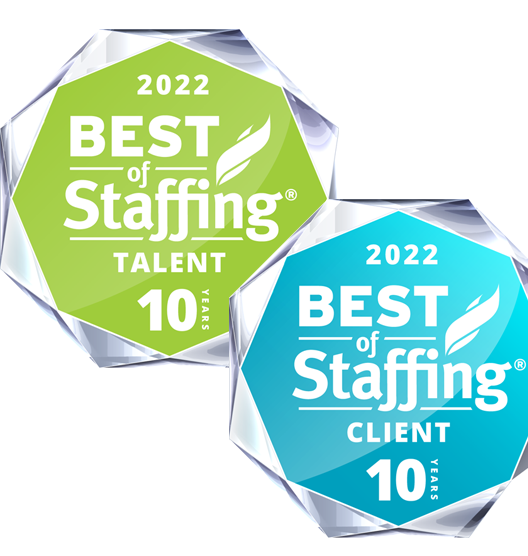14 Ways to Research a Company's Corporate Culture
|
 |
 All too often when we're looking for a new job, we become blinded to the negative and would move even if the hiring manager promised to kick us in the kidneys four times a day. I understand when you have no job, that it's important to take what you can get, but never settle for working at a company with a poor culture (or if the culture really isn't "wrong," but you just don't fit in anyway). You're giving them skills and experience that they can't get from other candidates, and they're trading that for money. Don't forget that employment is a two-way street!
All too often when we're looking for a new job, we become blinded to the negative and would move even if the hiring manager promised to kick us in the kidneys four times a day. I understand when you have no job, that it's important to take what you can get, but never settle for working at a company with a poor culture (or if the culture really isn't "wrong," but you just don't fit in anyway). You're giving them skills and experience that they can't get from other candidates, and they're trading that for money. Don't forget that employment is a two-way street!
For many of the questions below, there are no "right" answers. Everyone appreciates different things about specific working environments, and what may appeal to you actually repulses others. Consider what the ideal work environment would be for you, and filter the responses through that. Oh, and several of these methods will require you to ask unorthodox questions of the hiring manager or recruiter, but it's the price you pay if you're going to be serious about finding the right culture fit for you.
The Right Questions to Ask
- Ask to interview an employee or two on what they enjoy about working there.
- Ask for a walkthrough of the office--listen for laughs and look for smiles; that says a lot about the work environment.
- Ask about previous people who held the position if you are replacing someone--find out what they did right and what they could've done better.
- Look at sites like Glassdoor.com for reviews by current or former employees.
- Keep in mind that there are "pockets" of culture within individual departments, so the overall company culture could differ from your specific work area--that's why it's important to try to do things like #1 and #2 above.
- Ask what sorts of behavior are rewarded and which are punished.
- Ask how (or if) news that affects the company is shared--does everyone learn of it at once or is it distributed to managers to trickle down to employees? Are they transparent?
- Find out what sort of events the company holds for employees--is it a once a year Christmas party or are there monthly opportunities to celebrate with co-workers?
- Ask if there are known slackers in the office and try to find out why they are still around (good luck with this one, but if you get a straight answer, you will have a leg up).
- Ask about how difficult it is to get attention or funding for new ideas and initiatives--are they a "we've always done it that way" type of company?
- Ask what the company's overall mission/vision is. If a random employee can tell you (at least in general terms), it could signify a strong, unified workforce.
- Ask about the dress code and other abrasive policies/details that, while palatable at first, can end up chafing you down the line.
- Find out if the company offers any sort of reimbursement or support for training, seminars, or college tuition. If they value smart employees who work to better themselves, they probably will.
- Ask how previous employees who committed ethics violations were held accountable (general terms are fine to protect any guilty parties, but do they even care about ethics in the first place?).
Even asking a few of these questions should help you discover whether that new job that seems so exciting will truly be the right fit for you.
Ben Eubanks is the founder of UpstartHR. In February 2012, he was named one of the Top 100 Human Resources Experts to Follow on Twitter. This post originally appeared on the UpstartHR blog: http://upstarthr.com/company-corporate-culture-14-ways-to-research-as-a-job-candidate/.





